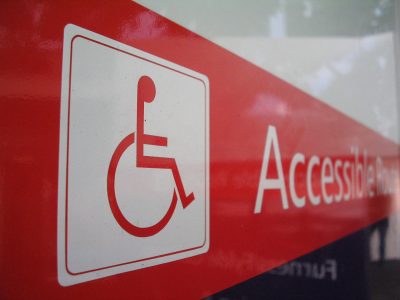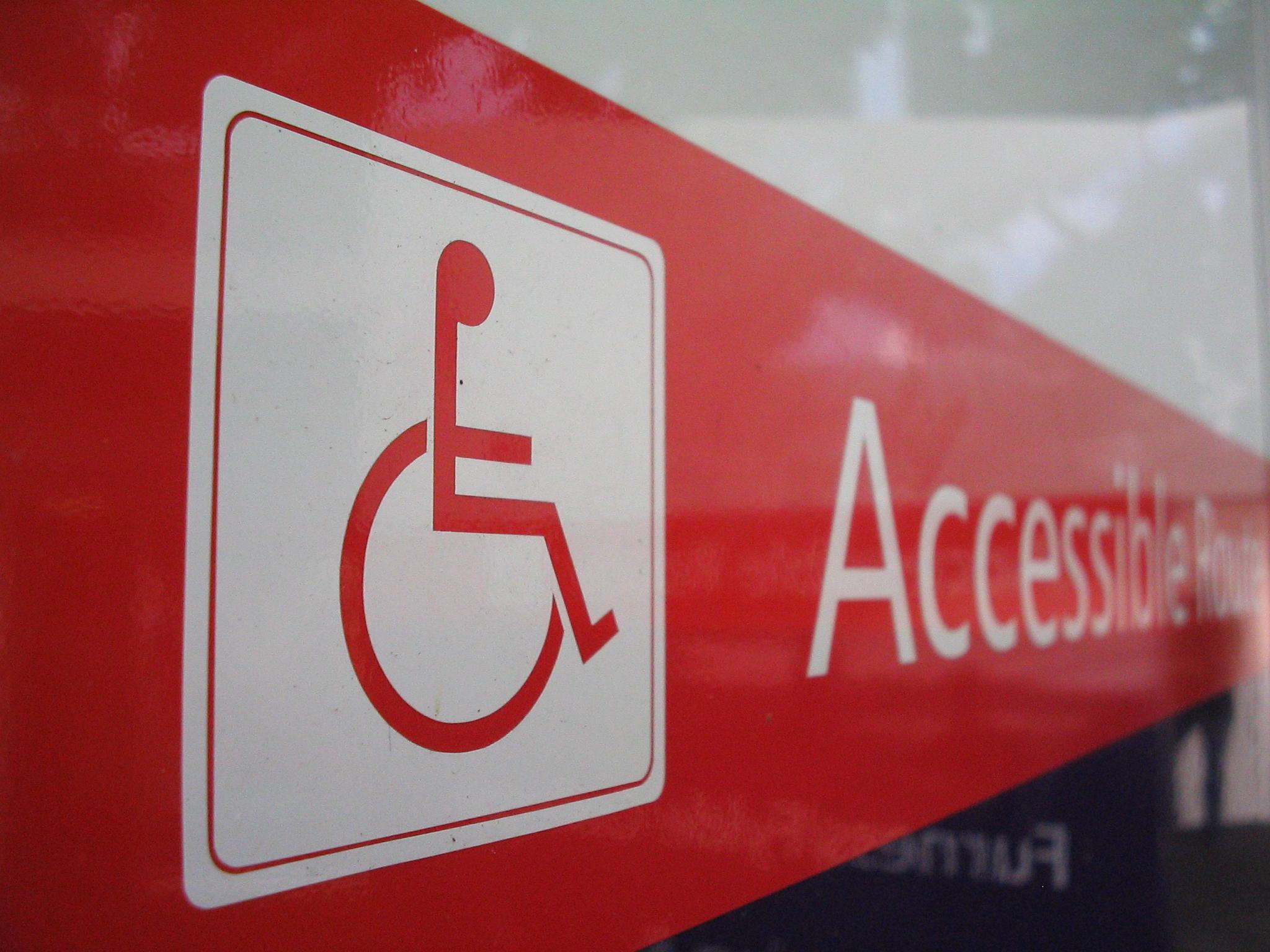 My friend Brian — who uses a mobility device to move around — can today gain access to more stores than a mobility-impaired person could two decades ago. Thanks to social movements and federal policy changes, many public locations are now required to make their entrances more accessible to those with disabilities.
My friend Brian — who uses a mobility device to move around — can today gain access to more stores than a mobility-impaired person could two decades ago. Thanks to social movements and federal policy changes, many public locations are now required to make their entrances more accessible to those with disabilities.
The thing is though, while Brian now has an easier time getting into the stores themselves, he can’t always afford the things that he needs once he gets inside.
When Congress passed the Americans with Disabilities Act in 1990, it was certainly a step forward in ending discrimination against people with disabilities. Yet, it was not enough to combat the disproportionate poverty and joblessness that people with disabilities experience: In 2011, the poverty rate of working-age people with disabilities — 10.5 percent of the U.S. population — was over twice that of those without disabilities. Two-thirds of that 10.5 percent were also unemployed.
Social welfare programs like Medicaid are meant to help address and alleviate this sort of discrimination — approximately 70 percent of Medicaid funding has been used for services and supports related to disability since the program’s inception. This funding is particularly important, since many people with disabilities face additional costs that others do not, such as expensive monthly medication, long-term services and care, or special equipment.
However, an increasing number of people in poverty who have disabilities will not receive care from social services because their state will not accept Medicaid expansion under the Affordable Care Act (ACA). While the ACA’s new definitions will be qualifying more people for Medicaid, there will be constraints on who actually receives those benefits if its funding is not expanded.
Mississippi, one of the poorest states in the country, is among those that have not accepted Medicaid expansion. Because Governor Phil Bryant turned down approximately $426 million in federal Medicaid expansion funds, nearly 300,000 adults in the state will not get healthcare because they do not qualify for Medicaid under the state’s current rules and do not make enough to afford private insurance.
My friend Brian, who struggled to find an affordable health insurance plan, was lucky to live in Illinois — now that he qualifies for Medicaid thanks to the expansion that Governor Pat Quinn has accepted, he can now actually afford the goods he needs. If only more states accepted Medicaid expansion, others like Brian could have access to a more equitable standard of living.
Brianna Montague is an intern for the Break the Chain Campaign.
